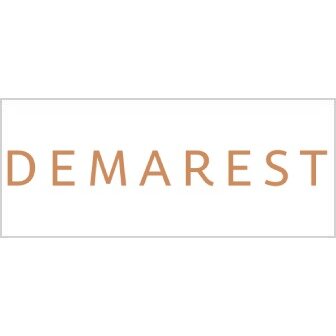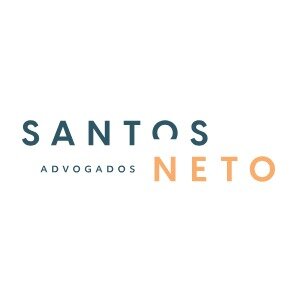Best Energy Regulatory Law Lawyers in São Paulo
Share your needs with us, get contacted by law firms.
Free. Takes 2 min.
List of the best lawyers in São Paulo, Brazil
About Energy Regulatory Law in São Paulo, Brazil
Energy Regulatory Law in São Paulo, Brazil governs the generation, distribution, commercialization, and consumption of energy resources such as electricity, natural gas, and renewable sources. The field encompasses a blend of federal and state regulations that ensure the operation of energy markets, promote sustainability, and guarantee the fair treatment of consumers and providers. As Brazil moves toward renewable alternatives and expanded energy access, São Paulo has become a pivotal state, with multiple regulatory bodies overseeing both public and private sector activities within the industry.
Why You May Need a Lawyer
Seeking legal advice in Energy Regulatory Law may be necessary for individuals, companies, and public entities involved in or affected by the energy sector. Common situations include:
- Understanding or contesting changes in energy tariffs and billing disputes with utility providers.
- Navigating the licensing and permitting process for new energy projects, including solar or wind installations.
- Assisting businesses with compliance related to environmental and safety standards imposed on energy operations.
- Handling cases involving illegal connections, unauthorized use, or interruption of service.
- Negotiating or drafting contracts for energy purchase, sale, or transfer in compliance with regulations.
- Participating in regulatory hearings before agencies like ANEEL (National Electric Energy Agency) or ARSESP (São Paulo State Regulatory Agency for Sanitation and Energy).
- Appealing sanctions, penalties, or administrative decisions from regulatory authorities.
Professional legal assistance can help prevent costly mistakes, ensure compliance, and protect your rights in a complex, heavily regulated environment.
Local Laws Overview
In São Paulo, Energy Regulatory Law is primarily shaped by national legislation such as the Federal Constitution, the Energy Law (Law No. 9.074/1995), and specific resolutions from federal agencies. However, there are also important state-level regulations and agencies that play significant roles:
- ARSESP acts as the main regulatory authority at the state level, overseeing public service providers and monitoring compliance with state and federal regulations concerning energy and sanitation.
- The State Energy Policy sets out priorities for energy generation, focusing on clean, renewable sources to support São Paulo’s sustainability goals.
- State Decrees and Ordinances establish specific rules for connection to the electric grid, authorization for distributed generation (like rooftop solar panels), and energy efficiency programs.
- Compliance with environmental licensing requirements is mandatory for all large-scale energy projects, integrating legal frameworks from both environmental and energy regulatory spheres.
- Consumer protection laws set out the rights and remedies for end-users - including dispute resolution mechanisms mandatory for all energy providers.
Awareness of both federal and state regulations is crucial, as processes and obligations may differ based on your location and the nature of your energy operations or concerns.
Frequently Asked Questions
What is the main regulatory authority for energy in São Paulo?
The primary authority at the state level is ARSESP (São Paulo State Regulatory Agency for Sanitation and Energy), acting alongside federal agencies like ANEEL for electricity.
How can I resolve a billing dispute with my energy provider?
First, contact your energy supplier’s customer service directly. If you do not reach a satisfactory solution, you can file a complaint with ARSESP or consumer defense agencies.
What permits do I need to install solar panels in São Paulo?
You must comply with local building codes and obtain authorization from the distribution utility. ARSESP and ANEEL provide specific guidelines for distributed generation systems.
Are there incentives for renewable energy in São Paulo?
Yes, São Paulo promotes incentives for projects involving solar, wind, and biomass energy. Incentives can include tax reductions, streamlined licensing, and technical support.
What should I do if my electricity is disconnected without proper notice?
The energy provider must follow strict procedures before service disconnection. If those procedures are not observed, customers can file a complaint with ARSESP and seek restoration or compensation.
Do energy laws cover consumer rights?
Yes, energy regulations in São Paulo incorporate consumer rights. Protections cover areas such as quality of service, transparent billing, complaint mechanisms, and remedies for outages.
What environmental laws impact energy projects?
Energy projects must follow federal and state environmental licensing processes, including impact assessments and obtaining necessary environmental permits before operation.
What happens if a business fails to comply with energy regulations?
Non-compliance can result in administrative sanctions, fines, suspension of activities, and, in serious cases, criminal liability or civil damages.
How are tariffs set for electricity in São Paulo?
Tariffs are determined by ANEEL at the federal level, but ARSESP regulates certain aspects of tariffs and fees for state-specific services. The process involves public consultations and technical studies.
Can I sell surplus energy back to the grid?
Yes, under the distributed generation program, consumers can feed surplus energy from sources like solar panels back into the grid and receive credits on future bills, following guidelines by ANEEL and ARSESP.
Additional Resources
For further information and assistance, consider the following resources:
- ARSESP - São Paulo State Regulatory Agency for Sanitation and Energy: Offers guidance, accepts complaints, and provides access to regulatory decisions.
- ANEEL - National Electric Energy Agency: Handles national policies, electricity tariffs, and utility regulations.
- PROCON-SP - Consumer Protection Foundation of São Paulo: Assists consumers in disputes with energy providers.
- Order of Attorneys of Brazil, São Paulo Section (OAB/SP): Provides a directory of energy law specialists and free legal orientation programs.
- Ministry of Mines and Energy (MME): Publishes updates, incentives, and general information about Brazil’s energy sector.
- Specialized law firms and consultancy groups with expertise in energy project development, licensing, compliance, and litigation.
Next Steps
If you need legal assistance in Energy Regulatory Law in São Paulo, start by:
- Identifying your specific issue or question, and gathering any documentation related to your energy matter.
- Contacting an attorney or firm experienced in energy law, particularly one familiar with São Paulo’s regulations and local market dynamics.
- Booking a consultation to review your case and receive tailored guidance on your rights, obligations, and possible legal strategies.
- Exploring mediation or alternative dispute resolution mechanisms, which can be faster and less expensive than court proceedings for some energy law matters.
- If dealing with consumer issues, you can also reach out to ARSESP, ANEEL, or PROCON-SP for initial guidance or to initiate a formal complaint.
Promptly seeking advice from qualified professionals ensures your interests are protected and can prevent complications or adverse legal outcomes in this complex and highly regulated sector.
Lawzana helps you find the best lawyers and law firms in São Paulo through a curated and pre-screened list of qualified legal professionals. Our platform offers rankings and detailed profiles of attorneys and law firms, allowing you to compare based on practice areas, including Energy Regulatory Law, experience, and client feedback.
Each profile includes a description of the firm's areas of practice, client reviews, team members and partners, year of establishment, spoken languages, office locations, contact information, social media presence, and any published articles or resources. Most firms on our platform speak English and are experienced in both local and international legal matters.
Get a quote from top-rated law firms in São Paulo, Brazil — quickly, securely, and without unnecessary hassle.
Disclaimer:
The information provided on this page is for general informational purposes only and does not constitute legal advice. While we strive to ensure the accuracy and relevance of the content, legal information may change over time, and interpretations of the law can vary. You should always consult with a qualified legal professional for advice specific to your situation.
We disclaim all liability for actions taken or not taken based on the content of this page. If you believe any information is incorrect or outdated, please contact us, and we will review and update it where appropriate.

















